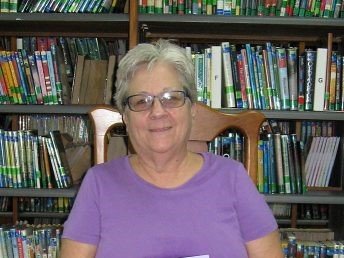Looking into a mirror

EVERY MORNING when I passed the Oval and saw Venezuelans lined up to register for the privilege to live and work in this country, I felt like I was looking in a mirror. I too am an immigrant. I’m the third generation of immigrants in my family.
Our immigrant story began when my mother and maternal grandparents fled Romania and ended up living in Germany during World War II as displaced immigrants. They lived in Lehrte, just outside of Hanover.
My mother attended school, my grandmother worked in an underground munition factory and my grandfather, who spoke German, Romanian, Czech and Hungarian, worked on the trains because Lehrte was the place where all the trains met.
This, of course, doomed the city to total destruction. The day the Allies bombed Lehrte, my mother’s friends talked her out of going home where she had planned to sit at the kitchen table to write letters.
She ran through the forest in a desperate attempt to outrun the bombs, and when she reached her street there were no houses left. My grandmother cried when she found my mother rummaging through the debris trying to find pictures and mementos of the past.
After the war, my grandma became the hero who saved her family. She had been born in the US when her stepfather decided to migrate there, but her mother was not happy in St Louis, Missouri, so she returned to Romania with my grandmother.
In the US, my grandfather worked for Gorman Rup pumps and my grandmother worked for Hartman electric. My mother worked in a knitting factory and cleaned houses. I learned the true meaning of freedom and appreciation for an adopted home from my mother’s family.
We were different and that difference shaped my life. My schoolmates lived in town and hung out at the pool in the summer. I lived light years away in a remote place where I rarely saw a car and never saw a child in the summer. My friends ate McDonald’s hamburgers. We ate Salisbury steaks and my grandmother’s creamed spinach, Hungarian goulash with sweet paprika.
My mother and grandparents had accents. No one else in school had a family like mine and I never felt accepted. No one else had a grandmother who had gone to prison for trying to flee the country.
That happened when my grandfather paid a smuggler to get them out of Romania, a place they never really belonged because their city of Timisoara had been carved out of the Austrian-Hungarian empire where they lived during World War I and given to Romania after the war. Borders have a way of changing.
After fleeing Romania and Germany and ending up in the US, they worked like no one I had ever seen because they wanted to feel like they had earned their place in their new home. I get that feeling from them. Every day I wake up wondering what I can do to make TT a better place. Immigrants always feel the need to belong; they always want to contribute to their new home.
Some Venezuelan immigrants say they will return home some day, but I know there is rarely any opportunity to turn back. You become entrenched in a new place and lost in the new purpose you discover.
My grandparents and mom never got over the hardships they suffered in Romania and Germany. They always remembered not having enough food to eat.
My mom always remembered my grandmother digging through fields to find potatoes or beets farmers missed so she could make potato pancakes with sweet beet syrup.
They never forgot the years when even a wheelbarrow full of money couldn’t buy a loaf of bread. All they ever wanted was a happy, secure life free of fear.
I have now lived more than half of my life in Trinidad. I have stood in those immigration lines. They are not a pleasant experience.
Long ago, I gave up the idea of ever being a citizen.
‘Immigration always has some problem with my application, but that doesn’t stop me from waking up every day and asking myself, “What can I do to earn my keep in this country?” That is the question that defines my day. The world is filled with immigrants, displaced immigrants and refugees. They have finally reached our shores. My advice is simply this: be kind and try to be understanding. You never know when you will be in a similar position. You never know if some day you will need to call another country home.


Comments
"Looking into a mirror"